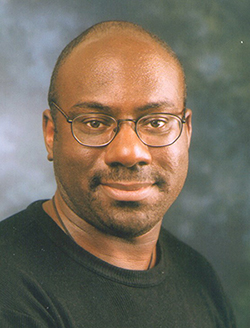
The African college of excellence in the social and human sciences

Prof Anthony Reddie
Britain’s planned exit from the European Union is a political hot potato, but Brexit is as much about theology as it is about politics, says Unisa researcher Prof Anthony Reddie.
"My interest is not in the merits or otherwise of Brexit but in how the 'Leave' campaign was constructed around a particular set of ideas about Christianity," says Reddie, an NRF A2-rated extraordinary professor who specialises in black liberation theology and is based in Birmingham in the United Kingdom. "My argument is that certain politicians on the right have been using Christianity to fuel a longing for 'empire' and stoke nationalism."
He says the notion that exiting the EU will protect "Christian Britain" has been subtly conveyed by various prominent politicians and tacitly supported by all the major churches, including the Church of England. "None of the major national churches have challenged Brexit," says Reddie, adding that part of what drove Brexit is "nostalgia for empire".
"At one time, Britain officially owned 24 percent of the world,” he says, referring to the 1885 Berlin Conference where the colonial powers gathered to "carve up" Africa, and Britain added various African countries to its Caribbean and Indian holdings. "When Britain gave its colonies away, the sense of prestige diminished and, as other scholars have noted, a post-imperial melancholy took hold. Brexit could be seen as a form of wishful thinking for the past."
Reddie notes that the British empire of yesteryear was built on the "three Cs" of commerce, civilisation and Christianity, which are closely interlinked - a phenomenon he explores in his upcoming book, Theologizing Brexit, due to be published in mid-2019.
"The book posits that we have never deconstructed the impact of empire on the English psyche and the sense of manifest destiny - divine providence - that sometimes goes with it."
As part of his research into the creation of empire and its connections with Christianity, Reddie undertook historical research of church records, the work of missionaries and the pronouncements of Victorian-era British figures such as David Livingstone.
Theologizing Brexit is being published under the imprint of Unisa, with which Reddie has had an academic relationship since 2004. The relationship was formalised in 2015, when he was appointed as an extraordinary professor in theological ethics in the Department of Philosophy, Practical and Systematic Theology.
In January 2018, Reddie became one of only three Unisa scholars to have an A rating from the National Research Foundation of South Africa.
His soon-to-be published book on Brexit will be his 18th academic book to date; he has previously authored 10 of these and edited seven.
While controversy continues to rage in Britain and the Brexit deal of Prime Minister Theresa May, Reddie says his research stands regardless of any political outcome. "This book is about theology, not politics, and it is not dependent on the politics. It is a black theological response to English entitlement and the way we deal with immigration and xenophobia. Britain needs to be honest about the immigration conversation."
* By Clairwyn van der Merwe, Contract writer, Directorate of Research Support
Publish date: 2019-04-01 00:00:00.0